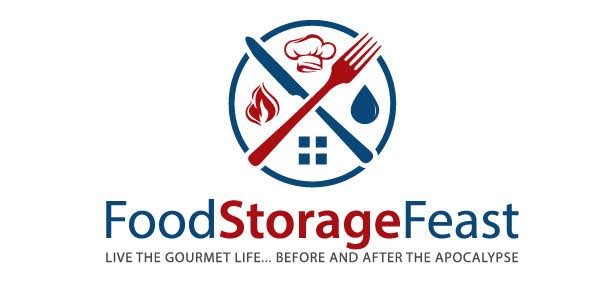…and it has
In 2001, the government of Argentina had gone far past maxing out their credit, the peso dropped, and the country plunged into economic free-fall. The wealthy fled the country carrying footlockers full of U.S. dollars.
In the years following World War II, this incredibly fertile land was called, “the world’s granary.” Enormous agricultural surpluses were shipped all the way to Europe.
Following the collapse of the 2001, locally-grown food became worth far more on the international market than at home, and the agricultural heavy-hitters simply shipped all the food out of the country. In poorer parts of Argentina, this resulted in empty store shelves and literal starvation. In 2002, British newspaper The Guardian reported:
Children are dying daily of malnutrition in Argentina as a result of the catastrophic economic crisis in the world’s fourth biggest exporter of food.
In the past week, images of stunted, emaciated children have scandalised Argentina, long known as the grainstore of the world.
Meanwhile the vast, fertile country has increased exports of meat, wheat, corn and soya this year.
Some of the children pictured in north-eastern Tucuman province had the bloated stomachs, blotchy skin and dry hair associated with severe protein deficiency…
…parents admitted to feeding their babies and infants with sugary green tea instead of milk or food, which they often cannot afford.
Four of the children who died there last week, aged between two and six, weighed under 10kg [22 lb.].
“I hardly had any breast milk” said 24-year-old Roxana de Benedetti, whose five-year-old son Hector died three weeks ago in Villa La Carmela, a shanty town… and whose six-month-old daughter Milagros, who weighs only 2.8kg (just over 6lb), is in the children’s hospital in Tucuman.
“They told me I needed fortified milk powder, but [I can’t afford it]. Thank God they’ll give it to her in there.”
In a surreal outburst of denial, an Argentinian official quoted in the article said, “We are not Biafra.”
In February of 2010, Chile experienced and 8.8 earthquake, with an accompanying tsunami.
Days after the quake, The Washington Post reported:
In Concepción, looters set fire to a department store and supermarket, and a massive cloud of black smoke billowed over the city…
…the mayor of Concepción, Jacqueline van Rysselberghe, made a desperate plea for more troops and aid from the national government.
“Fear is everywhere. Armed men with pistols are attacking residential homes,” van Rysselberghe told reporters, adding that even firefighters trying to distribute water had been attacked. “Send the largest number of troops possible.”
The scene was more chaotic elsewhere. In San Pedro de la Paz, a city next to Concepción, looters stripped a clinic clean of medicine and supplies. Chilean National Television said there had been “neighbor versus neighbor” fighting in the coastal areas of Coronel and Lota, in Concepción province. Food shortages were reported in many parts of the country, and electricity outages remained widespread.
When people from English-speaking countries visit Japan, they often note the futuristic quality of the country’s infrastructure and everyday technology. Hi-tech vending machines sit next to rural bus stops in the middle of nowhere, next to rice paddies. Food is available everywhere.
But in 2011, an undersea quake and the ensuing tsunami caused extensive flooding and destruction, killing over 15,000 people, and sparking the nuclear disaster at Fukushima. Japanese Prime Minister Naoto Kan said, “In the 65 years after the end of World War II, this is the toughest and the most difficult crisis for Japan.”
Days after the quake, The Guardian reported:
The lack of petrol makes it difficult to deliver food…supermarkets are rationing shoppers to two pieces of bread each. For many the situation is desperate.
“I’m hungry. So are my four children. All we have to eat each day is one banana and a rice ball,” said Hiroko Kodo, a care manager in an old people’s home…
“I haven’t had breakfast or lunch today. We just get one very small meal – a single rice ball or piece of bread,” said Mieko Kono…
Even the most technologically advanced nation in the world is susceptible to the falling dominoes of a natural disaster.
